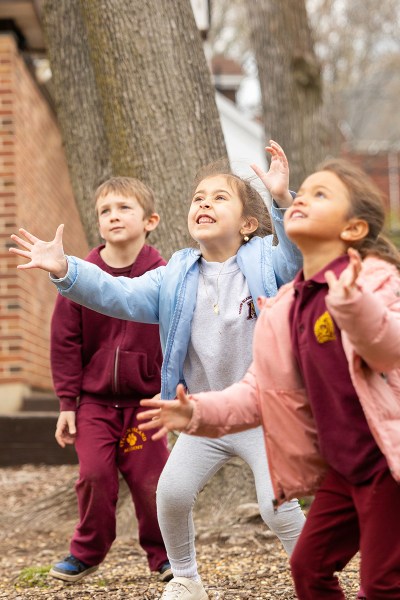Why Human Connection Matters More Than Ever for Preschoolers in a Digital Age
In a world where technology is ever-present, even our youngest children are growing up surrounded by screens. Tablets, smartphones, and streaming platforms are often part of daily life before a child even enters kindergarten. While technology offers many benefits, early childhood development thrives through human connection, hands-on play, and real-world interaction.
Preschoolers are at a critical stage of social and emotional growth. They learn to identify and regulate emotions, share, take turns, and resolve conflict—skills that cannot be taught by swiping a screen. Interaction with classmates, caring adults, and experienced educators happens naturally at Staten Island Academy, where students aged 3-5 are given opportunities to model, encourage, and inspire others. Emotional intelligence begins with recognizing how others feel and responding with empathy, and that foundation is laid through everyday moments of conversation, imaginative play, and teamwork.
Outdoor play is another essential ingredient in early development. On a campus that boasts over 200 trees, The Academy’s natural classroom sparks curiosity, creativity, and collaboration. Whether building forts, jumping in puddles, or playing a game of tag, children learn to navigate group dynamics and solve problems together. Physical play also improves motor skills and reduces anxiety, helping children feel more confident and emotionally balanced.
Storytelling, building with blocks, illustrating, working in the campus garden, and other screen-free activities promote deeper engagement and creativity. Unlike digital entertainment, which often offers instant gratification, these activities require patience, imagination, and cooperation. Prioritizing family meals without screens, engaging in conversations, or planning group playdates can nurture a child’s sense of connection and community. The selective Early Childhood Program at Staten Island Academy introduces a range of daily specials, which include Visual and Performing Arts, Science with classroom animals, learning ASL, and Physical Education—where children can safely learn how to work and play together.
Developing strong social and emotional skills in early childhood does more than prepare kids for kindergarten—it prepares them for a swiftly changing world. As automation and artificial intelligence reshape the job market, the most valuable skills of the future will be those that machines cannot replicate: empathy, collaboration, adaptability, and communication. The foundation for these human-centered abilities takes root in the preschool years, not through screens, but through play, conversation, and connection.
Now more than ever, our youngest learners need real relationships to grow, thrive, and become capable, caring contributors in tomorrow’s world. Learn more about the Early Childhood Program at Staten Island Academy by scheduling your private tour or visiting www.statenislandacademy.org




